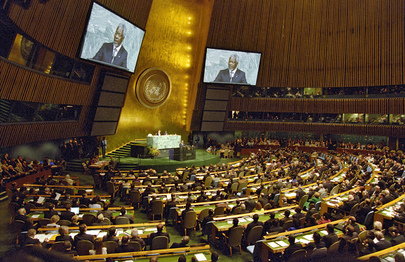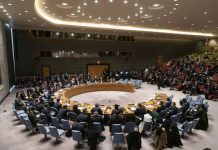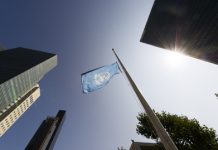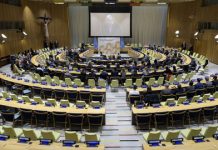OHCHR Spokesperson Ravina Shamdasani described the new directive, which reportedly took effect on Tuesday, as “yet another direct blow” by the de facto authorities against Afghan women and girls.
“It is profoundly discriminatory, short-sighted and puts the lives of women and girls at risk in multiple ways.”
Afghanistan already suffers from one of the highest maternal mortality rates in the world and there are deep concerns that that the ban would further erode women’s precarious access to healthcare.
It will also prevent a new generation of nurses and midwives from receiving training.
Under Taliban rules, male medical staff are prohibited from treating women unless accompanied by a male relative, making the presence of female healthcare workers critical.
Ms. Shamdasani noted that the new directive not only blocks the remaining path for Afghan women to pursue higher education but also undermines the country’s overall healthcare system.
Urging the de facto authorities to repeal the harmful directive, she stressed: “It is high time women and girls’ human rights are ensured, in line with Afghanistan’s international human rights obligations.”
Stunted development
The UN Assistance Mission in Afghanistan (UNAMA) also expressed deep concerns over the directive, stating that, it posed “further restrictions” on women and girls’ rights to education and access to healthcare.
“Ultimately, it will have a detrimental impact on Afghanistan’s healthcare system and on the country’s development,” the Mission said in a statement.
Inexplicable and unjustifiable
Richard Bennett, the UN Special Rapporteur – or independent expert – on the situation of human rights in Afghanistan, described the ban as “inexplicable and unjustifiable.”
“[It will] have devastating impact on entire population if implemented and must be reversed,” he said in a post on the social media platform X.
Appointed and mandated by the Geneva-based Human Rights Council, Mr. Bennett serves in an individual capacity, independent of any government and the United Nations. He is not UN staff and does not draw a salary.
Source of original article: United Nations (news.un.org). Photo credit: UN. The content of this article does not necessarily reflect the views or opinion of Global Diaspora News (www.globaldiasporanews.net).
To submit your press release: (https://www.globaldiasporanews.com/pr).
To advertise on Global Diaspora News: (www.globaldiasporanews.com/ads).
Sign up to Global Diaspora News newsletter (https://www.globaldiasporanews.com/newsletter/) to start receiving updates and opportunities directly in your email inbox for free.




























